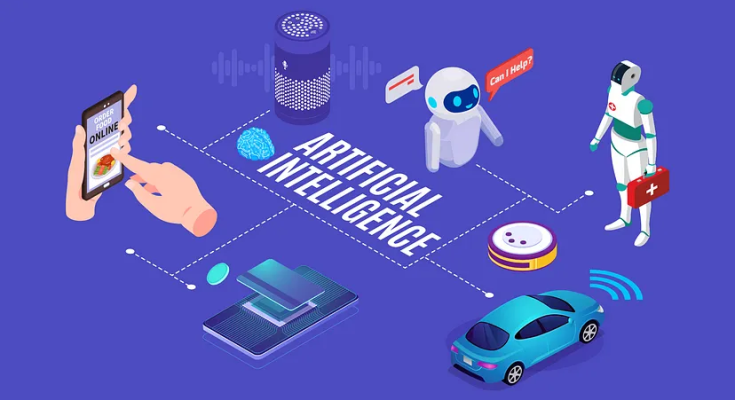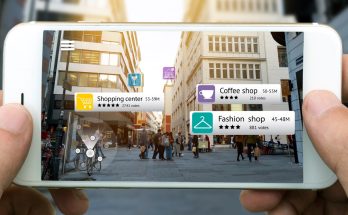How Artificial Intelligence is Transforming Everyday Life
Artificial Intelligence (AI) is no longer just a futuristic concept found in science fiction. It’s here, and it’s already embedded in many aspects of our daily lives. From how we communicate and shop to how we travel and receive medical care, AI is transforming the modern human experience in profound ways. As we progress through 2025, AI continues to evolve rapidly, bringing convenience, efficiency, and even ethical concerns to the forefront.
AI in Personal Assistants and Smart Homes
One of the most visible applications of AI is in smart home devices and virtual assistants. Tools like Amazon Alexa, Google Assistant, and Apple’s Siri rely on natural language processing (NLP) and machine learning algorithms to understand user commands and respond intelligently.
These AI systems can control lighting, adjust thermostats, play music, order groceries, and answer questions — all using voice commands. With improvements in contextual understanding and multi-device integration, smart homes are becoming more intuitive, learning user preferences over time to deliver a seamless experience.
AI in Communication
AI is revolutionizing how we communicate across languages and platforms. Real-time translation tools powered by AI allow people to converse effortlessly despite language barriers. Apps like Google Translate and DeepL are becoming more accurate, thanks to neural machine translation models.
Moreover, AI-powered chatbots are taking over customer service tasks across websites and apps. These bots can handle complex queries, book appointments, and even troubleshoot issues — all while providing 24/7 support. Companies benefit by saving costs, and users enjoy instant, often accurate responses.
AI in Healthcare
Healthcare has witnessed a major transformation through AI. Algorithms can now detect diseases from medical images such as X-rays, MRIs, and CT scans with remarkable precision. AI systems like IBM Watson are used to support doctors in diagnosing conditions and suggesting treatment plans based on large datasets.
In addition, wearable health devices such as smartwatches track vital signs like heart rate, oxygen levels, and sleep quality in real time. AI processes this data to detect anomalies early, potentially preventing serious health events. Virtual health assistants can also remind patients to take medication, schedule appointments, and offer mental health support.
AI in Transportation
Self-driving technology, once a distant dream, is now becoming a part of everyday life. Companies like Tesla, Waymo, and Uber are investing heavily in autonomous vehicle technology. AI enables these vehicles to understand road conditions, detect pedestrians, navigate routes, and make decisions in real time.
Even in conventional cars, AI is present in features like adaptive cruise control, lane-keeping assist, and parking automation. Public transport systems are also leveraging AI for route optimization, traffic prediction, and fleet management, improving efficiency and reducing carbon emissions.
AI in Shopping and Retail
E-commerce platforms are leveraging AI to personalize the shopping experience. AI analyzes customer behavior, purchase history, and preferences to recommend products tailored to individual users. This targeted approach increases conversion rates and improves customer satisfaction.
In physical stores, AI-powered cameras and sensors track foot traffic, monitor inventory, and even analyze customer emotions to optimize layout and marketing strategies. Some stores are now experimenting with cashier-less checkouts using facial recognition and RFID technology driven by AI.
AI in Finance
The financial sector has embraced AI to enhance security, automate trading, and improve customer service. AI algorithms can detect fraudulent transactions by identifying unusual patterns in real time. Robo-advisors use AI to manage investment portfolios based on user preferences, risk tolerance, and market trends.
Chatbots in banking apps now assist with transactions, bill payments, and financial advice. Moreover, predictive analytics help banks and insurance companies assess creditworthiness, underwrite loans, and forecast financial risks more accurately than ever before.
AI in Education
AI is personalizing education like never before. Intelligent tutoring systems can adapt to individual learning styles, pacing, and skill levels, helping students grasp difficult concepts more effectively. Platforms like Duolingo and Khan Academy use AI to track user progress and recommend personalized exercises.
Teachers also benefit from AI through automated grading, plagiarism detection, and administrative support. In higher education, AI is being used to analyze data on student performance to identify at-risk students and provide timely interventions.
AI in Entertainment and Media
Entertainment has been transformed by AI in several ways. Streaming platforms such as Netflix and Spotify use machine learning to recommend movies and music based on user preferences. Video games increasingly feature AI-driven characters and environments that adapt to player behavior, creating more immersive experiences.
In content creation, AI can now write music, generate artwork, and even produce news articles. Tools like ChatGPT, DALL·E, and Runway AI are democratizing creativity, allowing anyone to generate professional-level content with minimal effort.
Ethical and Social Considerations
Despite its many benefits, the widespread use of AI raises serious ethical and social concerns. Issues like bias in AI algorithms, data privacy, job displacement, and surveillance are becoming more prominent. For example, AI systems trained on biased datasets can perpetuate discrimination in hiring, lending, or law enforcement.
There is also growing concern over the use of facial recognition and AI in monitoring public spaces. Governments and organizations must implement regulations to ensure transparency, accountability, and fairness in AI development and deployment.
The Future of AI in Daily Life
As AI continues to evolve, its integration into our lives will only deepen. From AI-powered legal assistants to AI therapists, the possibilities are vast. Future advancements could include AI companions, smarter prosthetics, and even AI-enhanced cognitive implants.
However, for AI to fulfill its promise responsibly, it must be guided by ethical principles and human-centered design. Education, oversight, and collaboration among technologists, policymakers, and the public will be key to shaping an AI-driven future that benefits everyone.
Conclusion
Artificial Intelligence is no longer a behind-the-scenes technology; it’s front and center in our daily lives. Whether it’s helping you navigate traffic, manage your finances, or stay healthy, AI is making the world more connected and efficient. As we move through 2025 and beyond, the key will be harnessing AI’s power while maintaining a strong ethical framework to ensure it serves humanity’s best interests.



